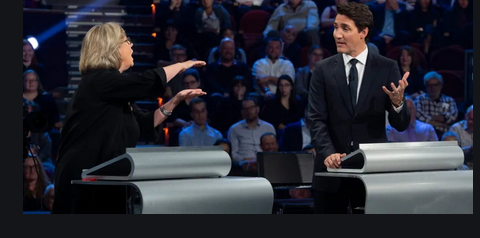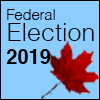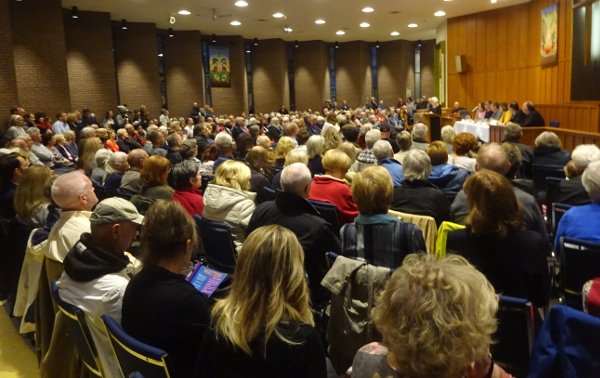October 21st, 2019
BURLINGTON, ON
The electioneering is over.
Now the citizens of the country get to choose who should lead at the federal government level.

This is what a debate is about. Why can’t we have stuff like this in Burlington during our elections?
I suspect that we are in for a bumpy ride and some big surprises – which should come as no surprise.
What do we know now about the candidates that wanted to represent Burlington in Ottawa? Not much more than they wanted to tell us unfortunately because for the most part we really didn’t grill these men and women.
There were no debates – we did the usual Burlington polite thing.
Burlington doesn’t appear to be very comfortable with holding people accountable for what they do.
Debates, when they are moderated properly, give audiences a chance to see the candidates in action; see how they respond to the thrust and parry of a debate.
Candidates and potential candidates need to know that there is a bar of expectations they have to reach. You have to be good, really good, if you want to represent Burlington in Ottawa.
Debates bring out the best in candidates and they put a spotlight on the flaws. The public is entitled to that level of transparency. If someone believes they have what it takes to represent the public – show us.
Unfortunately, Burlington has never had an organization that will take on that role. Cogeco doesn’t want to offend anyone – all they want to do is ensure that their cable TV license is never put at risk.
The Chamber of Commerce isn’t much better – they seem proud of their Q&A approach to candidates: Never rock the Boat, and for heaven’s sake don’t disrupt – bad for business.
ECoB has done some very good work. They televised the municipal events that took place and drew crowds that filled church halls. It was evident that the public wanted more.
The ECoB events made it clear that it was time to look for stronger moderators; people with more depth and the capacity to push the candidates.
What isn’t immediately evident is that you get better representation when you push. A look at what Burlington has at the provincial level and what it has been offered at the federal level on the Conservative side of the political spectrum xxx
One can only wonder what John Robarts, probably the best Premier the province has ever had, would think of what we have done to the Conservative reputation.
A long time Gazette reader told us of a time when there were “ratepayer” groups throughout the city that communicated with the school board and city council. Those parents aged and their children grew up and the world changed.
The pressure on households is much different these days; parents don’t have as much time. In most households both parents work, and there are a lot more single parent families. Also, government is much more complex and the needs of the community are greater.
Students face an environment that is a lot different than the one their parents experienced. We also have a community that was nowhere as large as it is today – the baby boomers are moving into retirement and the millennials have made it clear that at least some of them expect to be at the table.
The bureaucracy is different as well – it doesn’t respond the way it used to; the pace is different, development is much more aggressive and the relationship between the electors and the elected isn’t what it could be.
These are changing times – and we are going to have to adapt. How well we adapt will determine whether Burlington really is the “best place to raise a family. It is a city where people, nature and businesses thrive.”






















No need to apologize.
From ECoB’s perspective, the format we chose was an attempt to get all candidates to take part, and give them the smallest possible excuse for not attending. It still didn’t work out, but that was the hope.
In a world where accusations of ‘bias’ get thrown around at the drop of a hat, and where we’d been accused of ‘bias’ last year even though we made it clear questions were from the audience, and the chair was independent, we had to go out of our way to show that there would be no favouritism and no hidden traps. Even an interviewer who asked equally tough questions of every single candidate would still be accused of being biased. Plus, the ability to interview candidates and dispute or challenge their assertions is not a skill many volunteers for local associations feel they have. Most trained journalists can’t do it. If we’d tried it I think we’d have had more than the three out of twelve not take part.
Finally … we’re voting for local people and national platforms. Since most people are largely unaware of *who* the local candidates are and *what* the parties are committed to in the detail of their platforms, we thought we could throw light on both without having to get into a more adversarial approach. I’m not sure whether we succeeded, but we tried.